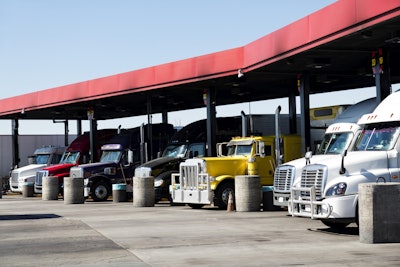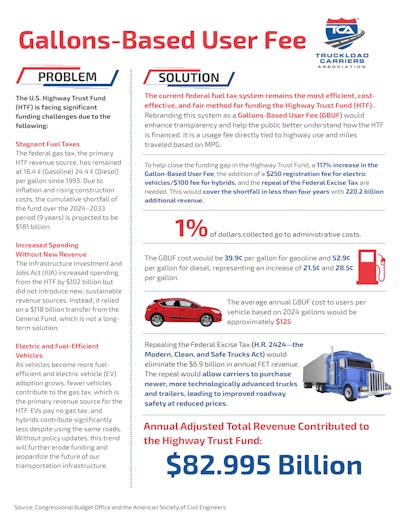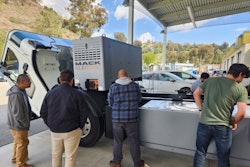
The United States faces a growing infrastructure crisis. Roads and bridges are aging, maintenance is falling behind, and the funding mechanism we rely on —the Highway Trust Fund — isn’t keeping up. We need a solution that is fair, transparent, and efficiently leverages the systems already in place.
The Truckload Carriers Association (TCA) is calling on lawmakers to adopt a Gallons-Based User Fee, or GBUF. This is a simple, common-sense update to the current fuel tax, which has not been raised since 1993. At it’s core, our plan aims to adjust the fuel tax to account for inflation and add an annual registration fee for electric vehicles to ensure they contribute their share.

The system already works
The federal fuel tax is the most efficient and cost-effective way to fund highway improvements. Administrative overhead costs represent just one percent of the revenue collected through the current fuel tax – a return that is almost unheard of in federal fundraising. Rather than replace this system, GBUF proposes an increase to match 30 years of inflation: 39.9 cents per gallon for gasoline and 52.9 cents for diesel.
To address the growing number of electric and hybrid vehicles that pay no gas tax, GBUF includes a small annual registration fee of $250 for electric vehicles and $100 for hybrids. This keeps the system fair and equitable as electric vehicle technology continues to proliferate.
This approach does not require a new collection system or a costly bureaucracy. It uses what we already have and adapts it to meet today’s needs.
Strong return on investment
Our estimates show that GBUF would generate an additional $220.2 billion in four years. That is enough to eliminate the projected nine-year Highway Trust Fund shortfall of $181 billion.
GBUF would also contribute over $651.7 billion toward closing the nation’s $1 trillion road and bridge funding gap, as identified by the American Society of Civil Engineers. These funds are critical for addressing deferred maintenance, improving safety, and reducing delays for freight and passenger travel.
For most Americans, the cost is reasonable. The average household would pay about $236 more per year. For each passenger vehicle the average increase would be about $125 per vehicle annually. Far more cost effective than the cost of repairing a vehicle that hits a pothole and blows a tire, or any number of other maintenance costs that can be directly contributed to the state of our infrastructure.
Repealing the Federal Excise Tax
One of the most impactful features of the GBUF proposal is that it allows for the full repeal of the 12% Federal Excise Tax (FET) on new trucks and trailers, without compromising funding goals.
Originally implemented to help finance World War II, the FET has remained in place for more than 80 years. Today, it adds tens of thousands of dollars to the cost of modern trucks, discouraging fleets from upgrading to cleaner, safer, more efficient equipment.
The trucking industry is under increasing pressure to invest in advanced technology, low-emission engines, and safety features. The FET stands in direct conflict with those goals.
Repealing the FET would remove a significant financial barrier and encourage faster adoption of newer vehicles. Importantly, the GBUF plan still balances the Highway Trust Fund even with this major tax relief for our industry.
The freight industry needs better roads
Trucks move more than 70 percent of freight in the U.S. Poor roads mean delays, increased costs, and safety risks for professional drivers and the motoring public. This issue affects every sector that depends on reliable freight movement.
Despite recent federal investments, the shortfall remains large. Bridges alone require $373 billion over the next decade. Roads need $684 billion. GBUF is not a complete solution, but it is a major step in the right direction.
Time to act
We are sharing this message with lawmakers, the U.S. Chamber of Commerce, and hope to take it to the White House. There is growing interest in this approach, and we are encouraged by the early conversations.
The Gallons-Based User Fee is fair, easy to administer, and ready to implement. We urge Congress to take action and modernize the Highway Trust Fund using this approach.
Our roads cannot fix themselves. Let’s use the tools we already have to keep America moving.
To help amplify this message in Washington, I encourage you to join us for TCA’s Fall Business Meetings and Call on Washington, taking place Sept. 29–30 in Washington, D.C. These meetings are your opportunity to speak directly with lawmakers and regulators, share the realities of our industry, and help move solutions like the GBUF forward.











